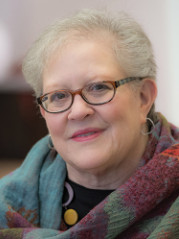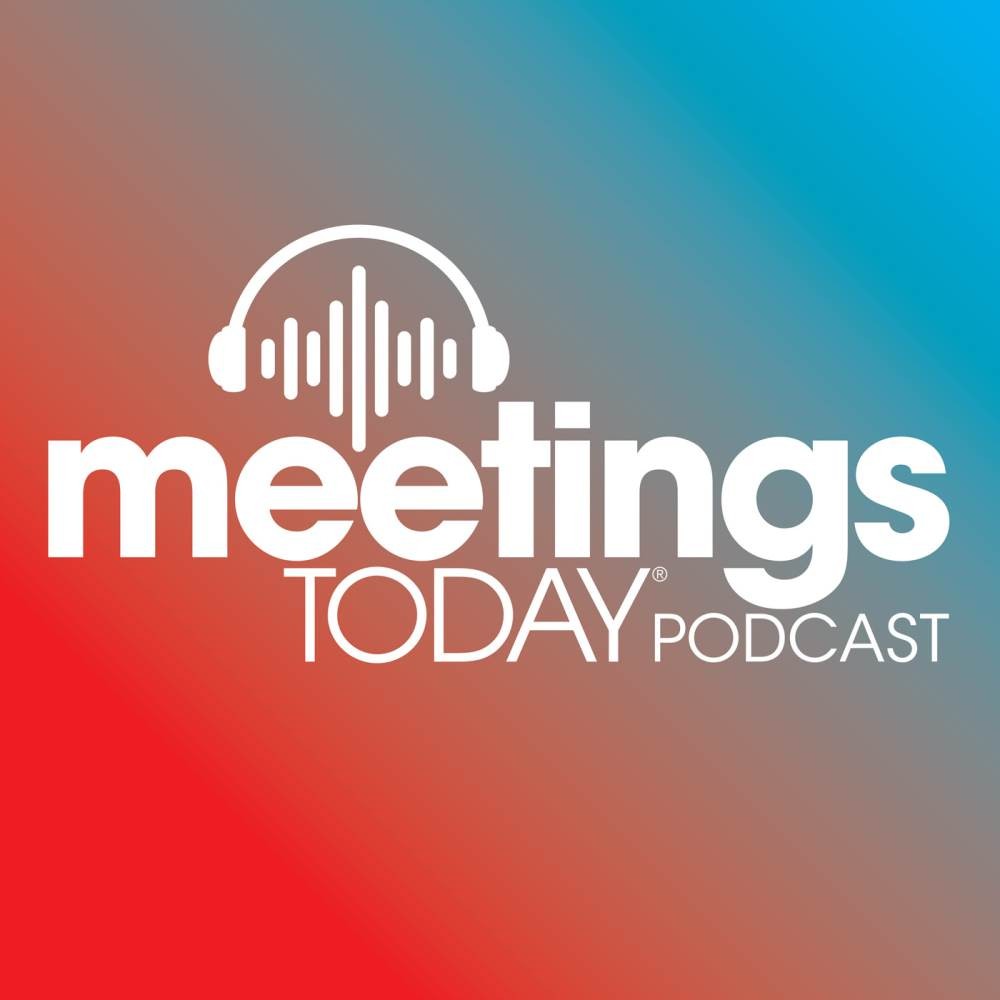Editor’s note: This information was accurate at the time of the podcast recording, March 13, 2020. We are monitoring and updating as new information is available.
Meetings Today blogger Joan Eisenstodt, a meetings industry thought leader and chief strategist of Eisenstodt Associates, has been participating in many of the thrice-weekly COVID-19 press conferences from the World Health Organization (WHO).
The following is a podcast and transcript from a March 13, 2020, podcast Meetings Today Vice President & Chief Content Director Tyler Davidson taped with her following one such press conference.
While Eisenstodt is by no means a health expert, following are her observations from these press conferences regarding what the infectious disease experts are communicating about the spread of the virus, and how it is impacting the meetings, hospitality and travel industries.
She also provides some tips to fellow meeting and event planners about precautions they should take if and when they hold meetings. For up-to-date information about coronavirus, WHO maintains an updated website about COVID-19.
Also available on iTunes, Google Play and Pocket Casts.



[Editor’s note: This information was accurate at the time of recording, March 13, 2020. For updated data regarding the COVID-19 pandemic, access the dedicated websites of the World Health Organization (WHO) and the Centers for Disease Control and Prevention (CDC).]
[Start transcript]
Tyler Davidson: Hello, and welcome to this Meetings Today podcast. I'm Tyler Davidson, vice president and chief content director of Meetings Today, and today we have a very interesting guest, Joan Eisenstodt, chief strategist with Eisenstodt Associates, and also a blogger for Meetings Today. Welcome, Joan
Joan Eisenstodt: Thanks, Tyler. It's nice to talk with you.
Davidson: You, too. And you have really been following the COVID-19 proceedings and actually been participating in—and thank you for representing Meetings Today—in [WHO’s] thrice-weekly press briefings. And although you're not of course, a doctor or health professional, you really are up to date on where the issue stands right at the moment. Correct?
 Eisenstodt: Thanks, Tyler. Yeah, and I think that it's interesting. I think that all of us in the industry need to be well informed because we're all being asked, and no matter what position we're in, to advise clients on going forward with meetings, stopping meetings, what to do, and how we proceed, including on contracts.
Eisenstodt: Thanks, Tyler. Yeah, and I think that it's interesting. I think that all of us in the industry need to be well informed because we're all being asked, and no matter what position we're in, to advise clients on going forward with meetings, stopping meetings, what to do, and how we proceed, including on contracts.
(Photo: Joan Eisenstodt, Meetings Today blogger, Chief Strategist, Eisenstodt Associates)
So I think that it is a time when the industry itself needs to pay even more attention—we should have been much longer ago when WHO and CDC [Centers for Disease Control and Prevention] started telling us. If we haven't, we need to do it now.
Davidson: And, you know, this is a very wide ranging and developing situation. But let's just start off with today. I believe you participated in a WHO press conference today [March 13, 2020] and actually asked a question on behalf of Meetings Today regarding the meetings industry?
Eisenstodt: I did, but let me go back for a second just to tell everybody a couple things. When I started participating—and sadly, I've really lost track of time because everything is changing; literally, it seems minute-by-minute. I remember in one of the first ones I've listened to, and then one of the differences today, was that in the past at these briefings, there have been press in the room with the three doctors and the moderator. Today, they had no press in the room. We were all virtual. So that was one thing.
The second thing was that Dr. Michael Ryan, who is the [chief] executive director of WHO—I remember, one of the first ones I listened to—he was asked specifically about conventions. And he sort of…he didn't laugh, but he sort of, you know how you when you respond to somebody who's asked sort of an obvious question? It's like, well…and what he said at that point—so this is probably three weeks ago—he said, at that point, just add this to your contingency plan. He said the same way you'd consider food poisoning and floods and fires; just add this to your contingency plan.
As the days progressed with the WHO briefings, it got to the, “We're advising no travel…we're advising no meetings…we're not saying, yet don't.” And today has been very different.
The thing that I thought was so interesting today was what Dr. Tedros [Adhanom Ghebreyesus], who's the head of WHO, said that every day there are more cases around the world now than there were at the height of the outbreak in China. And that figure literally jumped off the page at me, or off the screen, I guess, as I was watching and listening.
And so I think that what everybody thought was contained in China and that wasn't moving as broadly and to as many countries as it has, has done so. In fact, today I got something the news that said they now consider Europe the epicenter. It's stopped in China.
[Related: Essential Legal Tips for Event Cancellation and Postponement]
And as a side note, I watched last night a science and health reporter for a major newspaper talk about what China did specifically and went through step by step how they helped people and took temperatures and quarantined them or didn't quarantine them. And the process was fascinating, and it's everything that nobody else did except the Republic of Korea, or South Korea, as we most know it.
And so, the world wasn't listening and wasn't prepared. And so what we've seen as they've done these briefings is they've given though the same advice over and over and over and it was “prepare, contain and treat.”
They also have on their website the eight pillars of what you should do, and I think everybody should go to the WHO website and really read about it. They also talked about how they’re shipping test kits all over the world. I donated; they’re raising money to do more of that—this is a very costly enterprise.
Davidson: And I think one of the issues here that I've really heard about is that we just don't have the test kits available yet.
Eisenstodt: We don't have a couple things.
First of all, we don't have the test kits. We don't have the hospital capacity; a colleague who is a meeting planner for a medical organization posted in social media that hospital capacities now, compared to a few years ago, have dramatically dropped. And I think anyone who's living in a rural area certainly knows that more than those of us in cities, but even in cities, that capacity isn't great.
You know, I took notes during this and a couple of things that I found interesting: They talked about that the deadly mistake is not being aggressive, and so I compare this to what the industry has talked about.
Our industry has, I think, soft-pedaled a lot of this. And I get it. I mean, I understand that hotels need to make money in order to employ people in order to pay taxes into their communities, and we all depend on those taxes—I get that.
At the same time, because we and other countries—the United States and other countries—we're not aggressive, we now have this incredible spread. And so what they talked about today, again, was preparedness and being ready—detect, protect and treat—and we're not doing it. And so, I think that [is true] as an industry and as a country, among others—there are still other countries that are even less prepared than the United States. There are test kits. There are hospitals that can accommodate people. There isn't the ability to isolate as much as there used to be. And we really don't know what's going to happen.
One of the things that I've said in conversations face-to-face and…In fact, I just came back from a face-to-face meeting—I kept my commitment, I went, I traveled a very long distance. I put myself at risk to do what everyone in the industry had been saying you should do, and now those of us who attended are saying we will wait 14 days and we will hope for the best.
And so what I think that planners should be asking, and hotels should be asking their own health departments in their cities, and DMOs should absolutely know this information: Number one, what will hotels do the way cruise ships did if you've got either guests or employees who develop coronavirus and are tested and diagnosed—and if your hotel is in essence shut down the same way a ship would be—how will you do that? How will you in essence shelter in place and feed and care for people?
The second question to find out is what is the capacity of local hospitals? What will they be able to do? How are they treating people?
People are posting stories online—I'm hearing it from colleagues that I'm talking to—that people are being turned away from hospitals for routine treatment; that we're being told don't go to the ER unless it's critical. Some people, a colleague who had what she thought were the symptoms of--she’s in our industry—symptoms of coronavirus or a flu, went to her doctor and was told to go to the ER. The ER said, “We don't have test kits,” and she was sent away. And so we're in a very difficult position of not knowing what will happen and what to do.
[Related: Coronavirus Cancellation and Attrition Liability Must-Knows]
Davidson: And what was going on at that conference? It was MPI Cascadia I believe, in Oregon? What were people talking about there regarding this?
Eisenstodt: Pretty much nothing else but this and what to do and how to manage it, and whether or not they should continue with meetings or not. I know that the organizers of this had big discussions about whether they should have it. They had a number of cancellations, especially, because this was for Oregon and Washington state, mainly, and so a number of people from Washington state had to cancel mainly because they're having….In fact, the day I left is when Washington state put a cap of 250 on the number of people who could gather.
However, the hotels and the other businesses are saying, “We really can't afford to spend the money for someone to go away right now because our business is so far down.” I want to stop for a second, though, and tell everybody who's listening; this was an interesting experience because on my travel, first I happen to sit next to someone from an airline operations team. So we had a conversation about what they're talking about. And then, because I had very long layovers at an airport, I stayed in an airport club, and so I want everyone to pay attention to this—this is a big deal.
I was surprised; they have a lovely little food bar that people can eat from. It has a food guard on it. However, there were no hand sanitizers at either end of this little area, and there were no notes to hold onto a napkin, to use the utensils, right? So, they're telling us with doorknobs and doorbells and elevator buttons to not use your hands on it, and yet utensils, and then people eating with their fingers.
Davidson: And this is in a facility where people are coming in and then traveling off to all points in the world…
Eisenstodt: And having gotten on or off a plane and going back on a plane, and doing exactly that. Now, happily when I returned, and I said it again to them, they did put signs up and insisted that people use napkins.
All of us need to be aware of stuff like that. And at our meetings, if you're still going to have meetings—and people will—we need to make sure that there are things in place like don't pick up utensils that other people are going to use without using a napkin or some other covering.
Davidson: Because, I mean, you know more about this than I do, but this virus can linger on inanimate objects for up to 14 days?
Eisenstodt: Well, it's been really interesting. The last thing I read said it could linger for two hours. Other things I've read have said 14 days.
Here's the tough part. The reason it's called the novel coronavirus, is that it is brand new. They don't know enough about it.
What WHO and Dr. Fauci, who’s with the National Institutes of Health and is one of my heroes because he was one of the lead people during the AIDS crisis; what they're all saying is they don't know. They originally thought they knew the origin of this. Now because of its spread, they are not sure. And so there are people working around the clock, around the world, trying to figure out what this is.
One of the weird things is, originally they said that it was people over a certain age that were at more risk, or who had certain health conditions. In general, children are not getting it and they don't understand why. But again, we don't know.
If you think about it, it's only been December, January, February and March, right? So we're starting March, it's really only been not even four months since this became well known and that research had begun on this. And so I think that people have to be aware that we don't know.
There's been talk that—and this question is asked of every doctor that I've seen on every broadcast or written up, or even WHO has been asked—will this stop when the weather's warm? And I remember Dr. Ryan saying that it hadn't stopped in Singapore where it's very hot and humid. So, and then we saw that Tom Hanks and his wife now have coronavirus…
[Meetings Today Bookstore: The Meeting & Event Risk Management Guide: How to Develop a Customized Risk Management Playbook]
Davidson: I have to say much, much kudos to him for being so public about that.
Eisenstodt: It's interesting, and yes, them and I think the sports figures who have it, and I think that what has happened is that people are really trying to ensure that they, that people know that others can get it. It's why so many sports events have been…first it was no audience, then it was shut down entirely. So, we don't know if warm weather is going to change anything—we don't know.
And one of the interesting things they said a few briefings ago was that there had been some sign in China that that COVID-19 was morphing, so there was like a new virus. And so what has been said is that they don't know once all the people who've been in quarantine, and when things get back to sort of normal in China, what will happen. Nobody knows, again.
Davidson: Nobody knows if it may mutate, which could be another [issue].
Eisenstodt: Nobody knows any of this. Today I saw that EXHIBITORLIVE, a big show, and another big show in Vegas, is postponing. We've seen the number of shows that did.
The toughest part has been that meeting planners and groups, because this is not considered force majeure—the industry attorneys are all saying that—what we don't know yet is whether the bans by certain states and countries and cities of saying that so only so many people can meet, if that will be considered a government action. There is just not enough that we know.
Two things that I think are important, and one of them was today on the broadcast…
Davidson: And I should actually preface by saying it's March 13 as we're talking right now, because everything is changing so fast. I just want to make sure everyone has the proper date stamp on it.
Eisenstodt: Yes, thanks, Tyler, because it is changing. What my guess is by the time we finish recording this, it will be different.
One of the things I've considered, and what I can't get an answer to, is what hotels are doing for their employees. I think that any food servers, and we know that in Las Vegas one particular hotel company has closed all the buffets and all their hotels and a number of restaurants. Now closing the restaurants is no doubt because of the number of meetings and travelers that are down. Closing the buffets, I think, has much more to do with safety.
What we don't know is how housekeepers are being protected, and if you consider what they're handling and what they deal with, I'm hoping that hotels will do a lot more for them.
The second interesting thing to me, there was a story on PBS NewsHour last week about where you live, San Francisco's Chinatown—and you don't live in Chinatown, you live in San Francisco—about Chinatown and how business was down 75% to 90%.
They interviewed a guest at a hotel who thought that by going into Chinatown, he would get COVID-19, and one of the questions asked today that I thought was excellent by someone else was about the stigma of having COVID-19, and Dr. Ryan addressed it, and I liked what he said.
He said there's a stigma and exclusion, and he said we really need to think about people who are most vulnerable in the population about getting this.
One of the things I had hoped, and I had posted in a few places, was that—and I heard this from people at the MPI Cascadia conference—that in San Francisco's Chinatown and Seattle's Chinatown, and around the country, a friend in Toronto said the same—people are not going to Chinese restaurants because they fear they can get COVID-19 by going.
What this makes me think of is how, and I think that they compared it today also, is the misconception about how people could get AIDS. It isn't from going into Chinatown and eating in a restaurant. It isn't from being around people; around anybody until you know they may have it.
What we learned today was the mayor of Miami, and other people who were around someone at a hotel in Florida, have in fact tested positive for COVID-19. So, you know, the message has been if you think you're sick, stay home, go away from people.
The question that I asked today was very specifically about what should be done if people are traveling, if people still go to meetings, and I said—I had just mentioned that I had been to one—if we find out that we have the virus, should we report it to, let's say, a hotel where we had just stayed or a restaurant where we had just eaten?
[Related: How to Protect Against Coronavirus]
And I was very heartened. Dr. Ryan started his comments with the empathy he had and sympathy he had for our industry, and how hard we’re hit. And it made me feel good to know how aware they are.
He said that WHO works very closely with the aviation industry, with tourism, with hospitality, and they're talking about this, and then Dr. Maria [Neira] said that the first thing is that you should do is report it to your local health department if you are diagnosed with it. And then it can't hurt to let others know where you've been, that you were there and that you have been diagnosed. And let the people, if you know them, know that you were in contact with them, let them know that you have it, and at least advise them that, in fact, there may be a chance that they should be tested; they should watch more closely.
So, I think that it is an incredibly tough time for everybody to cancel meetings. And everybody's doing it in stages. It's to protect people, and this is I think a critical point: It's not necessarily to protect those who may not be at as great a risk, right? So if you're 35 and incredibly healthy, you may never get this.
However, if you are a carrier of this and you go home and you work with people, or you have family members, or you have neighbors who are older; they may in fact be vulnerable. Or you may sit next to someone on an airplane who may be vulnerable.
And so what WHO and CDC are both recommending is be cautious. Dr. Fauci said at least two weeks ago that we should stop flying. And so I ignored that, I took my risk and I'm hoping for the best, and I won't know for some time.
I will tell you that I'm taking with me hospital-grade alcohol wipes, and because I need a wheelchair at the airport, before I even get in I wipe it all down. And then when I get to the gate I wipe anything I'm going to touch when I get into my seat—I wipe everything, including the air vents. And so, it's what we've been told to do. If you have to go somewhere, you have to do all of that in order to maintain some safety.
Davidson: I've been talking to lots of meeting planners just in the course of the work that I've done. And I can almost say without exception, every single one of them I've spoken with has been greatly impacted by this, and especially ones that maybe work for smaller companies or have their own companies.
You know, they said, “Well, I've just had five meetings cancel.” So they're in a world of pain right now. And maybe a lot of them, just financially, they don't know where this is going to go for them in their own personal situation. You talk to probably even more meeting planners than I do. What are you hearing from them?
Eisenstodt: There is nobody that this isn't touching—literally nobody. And I think that it's not just small meeting planning companies, among whom I'm included. If you think about this, so right now in D.C., and I live right in downtown, my spouse works for an association. They are teleworking until further notice. I've talked to other people; they're teleworking.
Think about all the businesses, the restaurants, the carry-outs—all of the businesses that are not getting any business. So you think about that, then you think about airports where the concessions may all close because there aren't passengers. I started making a mental list of everybody that would be touched by this.
I go back to the Chinatown example, where business is down 75% to 90% in San Francisco. And one thing that I think we could do, just as a side note of the “here's what you can do”; I think that we as an industry—we talk a good diversity and inclusion game. What a great time to highlight what's safe, you know, do something fun and do something positive for your city or for your hotel.
So, I think that speakers are being touched by this; they're being canceled. I think that all meeting planners understand that hotel brands, owners, management companies, everybody's being hit. And I think that we all have to cooperate; the associations are terrified. I have a client that I'll talk to you about later today, and they cannot, because of timing, really get out of their contract yet.
That associations could be bankrupt, and if even 10% to 15% of associations nationwide are bankrupt—what will that do overall to the economy and to the hospitality industry, since associations make so much of their money on their annual meetings?
I think going back to the beginning, there wasn't a strategy, there wasn't a thought. People believe this was only in China…And I think that what we have to do is strategically, even if it's too late, think about what we do going forward, both on how we think about where we hold our meetings, how we hold them, what our demographics are, how we keep people safe. You know, [meetings industry attorney] Tyra Warner and I and others have taught risk management for years.
Davidson: And Tyra Warner's one of the prominent meetings industry-focused attorneys, for those of you who don’t know…
Eisenstodt: Yeah, thank you, and a professor. And I think that there are those of us who have talked about these issues. I think that we need to focus even in a greater way. We know we did after 9/11. The interest went up in contingency planning and then it came down. And then we had Hurricane Katrina, the interest went up and it came down. And then we had all the subsequent hurricanes—the interest goes up, and it goes down.
This pandemic, Representative Tom Cole from Oklahoma, if somebody wants to search it—I think I tweeted it for Meetings Today. He predicted this and talked about it at least four years ago. And it's been believed that there will be more of these.
So, let's not wait again. Let's put stuff in place now. Let's have the conversations. Let's deal with the now but also look at the strategy for the future.
Davidson: Well, great. Well, thank you, Joan, from a Meetings Today standpoint, for covering this for us, and then also just bringing all this great information to both our industry and just the public in general, so many great tips and insight you brought today. So thank you for joining us.
Eisenstodt: Thanks, Tyler. I appreciate your doing this.
Davidson: And thank you for joining us for this Meetings Today podcast. Head on over to MeetingsToday.com, under our podcast section, and you'll see a variety of other podcasts with industry thought leaders on all sorts of subjects that are important to the meetings and events industry. Have a great rest of the day.
[End transcription]
Read next: 10 Coronavirus Crisis Communication Tips







